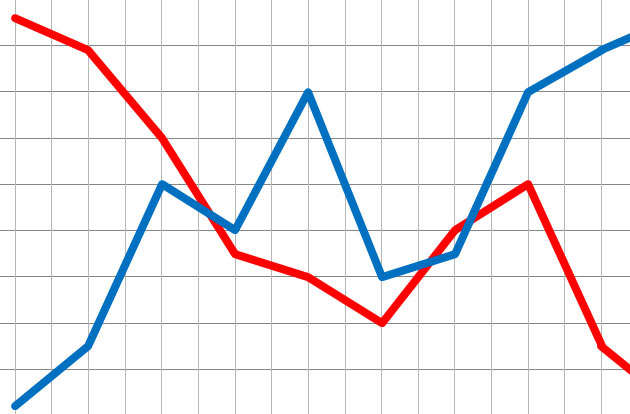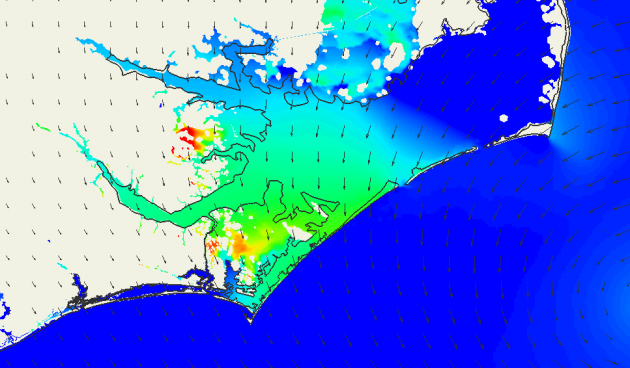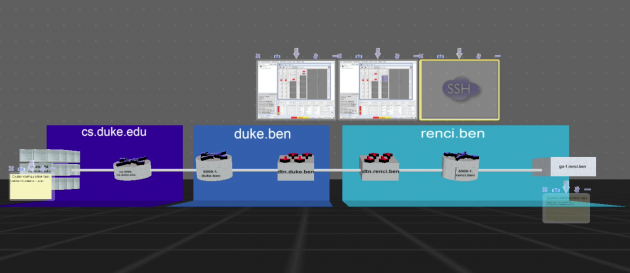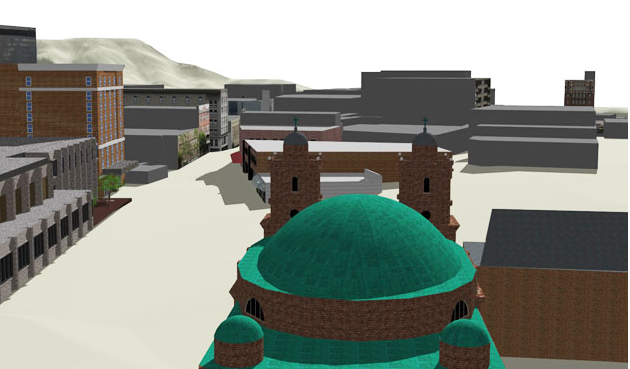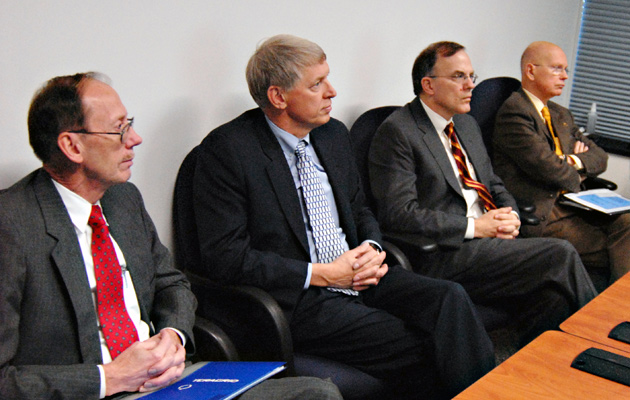
Alan Blatecky, far left, with UNC Vice Chancellor for Research and Economic Development Tony Waldrop, School of Government Dean Mike Smith, and former Chancellor James Moeser.
WASHINGTON, D.C., — Alan Blatecky, the former Deputy Director of RENCI and Interim Director from December 2007 – September 2009, was named Acting Director of the National Science Foundation’s Office of Cyberinfrastructure (OCI) this week by NSF Director Arden Bement. Read more





